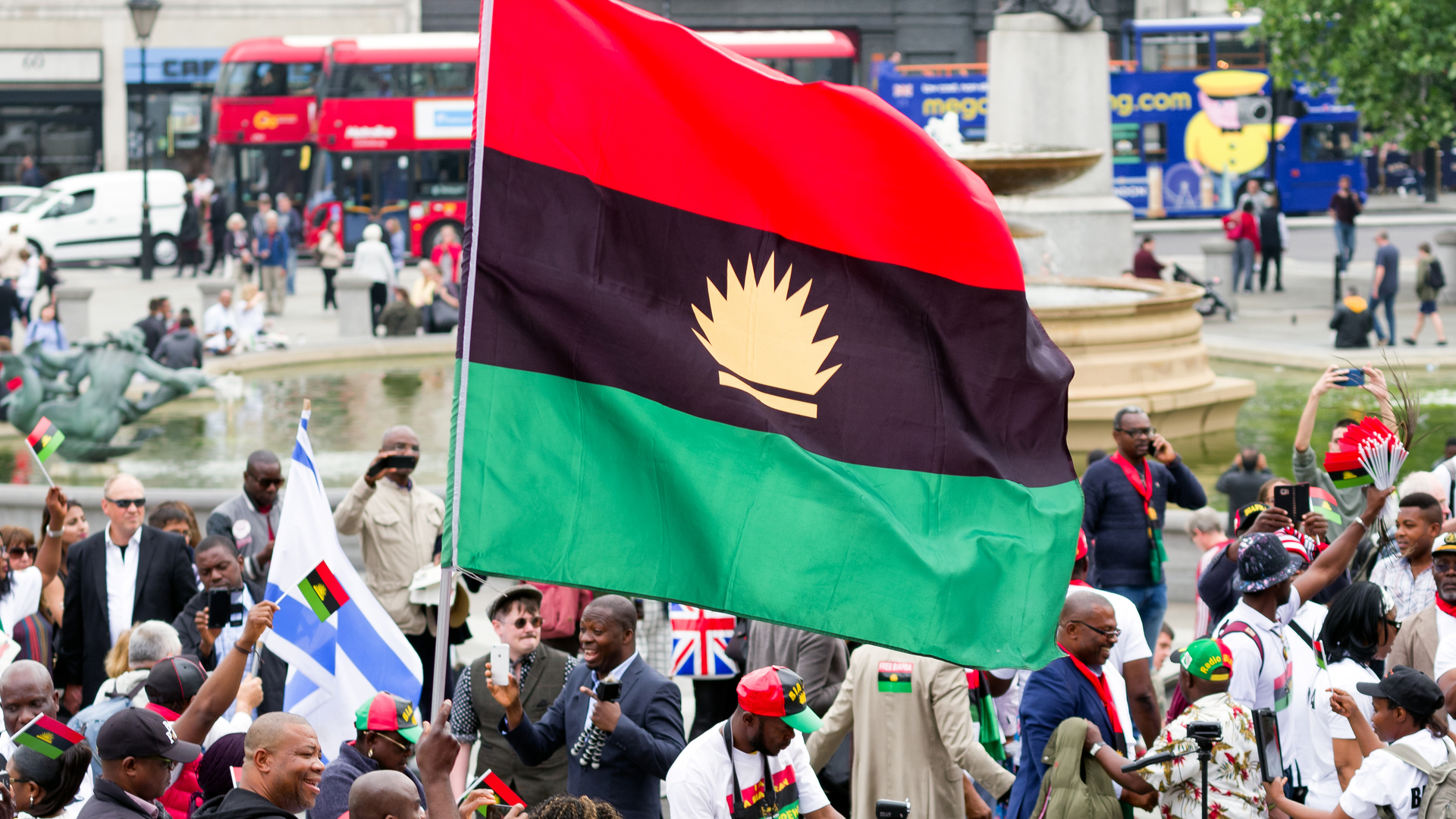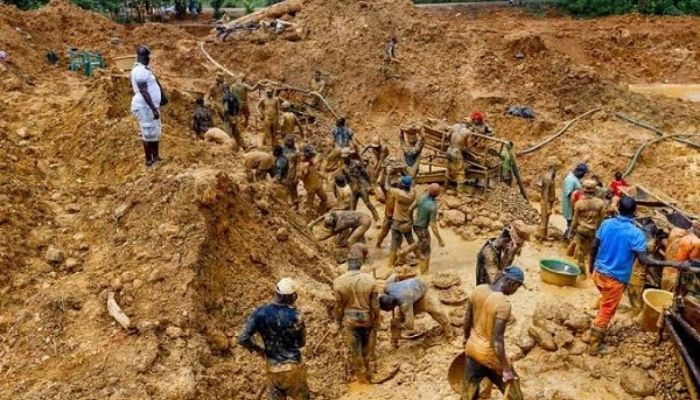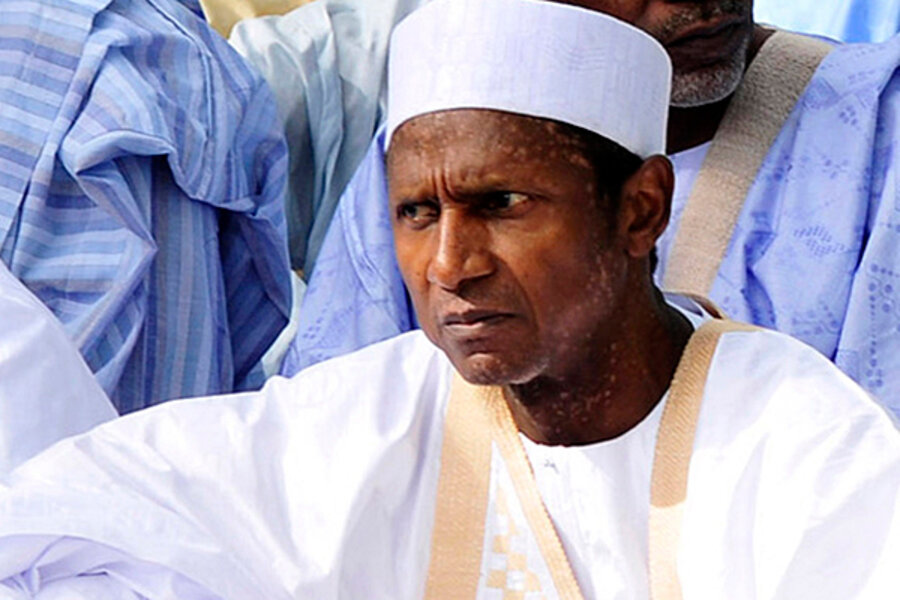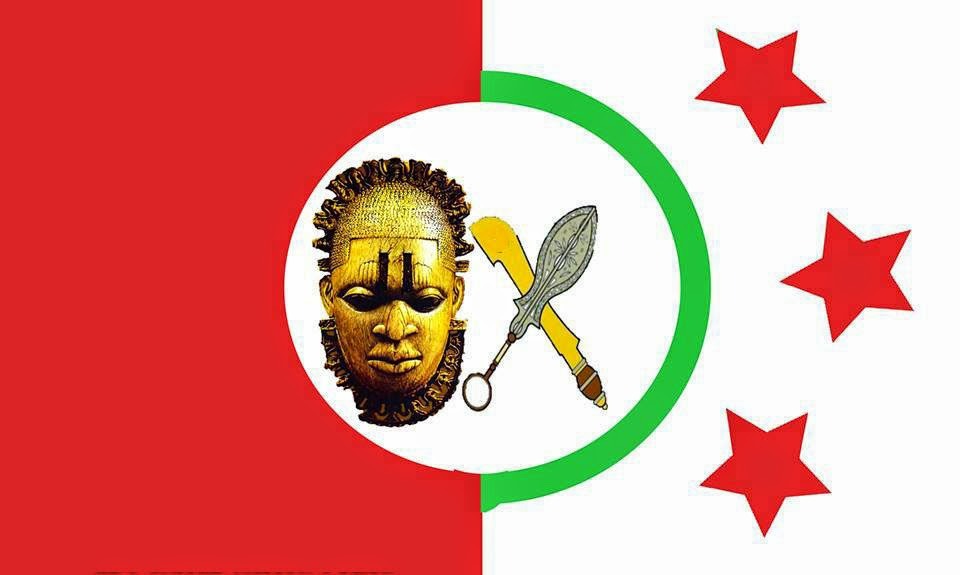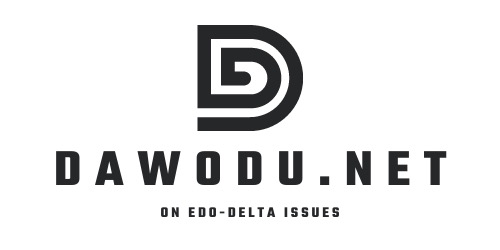culled from GUARDIAN, February 16/17, 2005
On Monday, January 24, 2005, a parcel of publications from Yusufu Bala Usman was delivered to me. It was addressed to my spouse and me. I was very happy to receive the publications and I said so in my e-mail to Bala. Even before I examined the six books, six magazines and a typed public lecture, I could guess why Bala would send such a heavy new year present to us: He wanted me, in particular, to appreciate, once again, his views on "The future of the Nigerian Federation", especially the campaign for a Sovereign National Conference (SNC) and the demand for the restructuring of Nigeria along ethnic nationality lines. These two issues have dealt a devastating blow on the self-confidence, unity and credibility of the Nigerian Left, a blow more powerful than that dealt by the crisis in the global socialist movement culminating in the dissolution of the Soviet Union.
Bala Usman needs no introduction in academic, intellectual and political circles in Nigeria. But for those outside these circles, and the younger generations, in particular, a brief political introduction is necessary. Since the end of the Nigerian Civil War (1967-1970), that, for about three and a half decades, Bala has been in the fore-front of radical politics and radical political discourse in Nigeria. He is a radical historian and a radical teacher of history. In 1975, he and Segun Osoba (the academic, not the former governor) were appointed into the 49-member Constitution Drafting Committee (CDC) that produced the first draft of the 1976 Constitution. The two leftist academics disagreed with their colleagues and came out with a dissenting report and a popular-democratic draft constitution. These two documents will occupy a central position when a true post-Civil War history of Nigeria is written.
Then came the Second Republic (1979-1983). Bala Usman joined the leftist People's Redemption Party (PRP) and became Secretary to the Kaduna State Government elected on the platform of the party. Balarabe Musa was Governor. Bala stood by the governor and helped ensure that he was not forced to enter into any unprincipled compromise with conservative bourgeois forces " just to remain in office. Rather than do this, the revolutionary governor accepted impeachment. The leftist and socialist movement celebrated Balarabe Musa and Bala Usman " the latter, for the second time in five years. Bala Usman is very bright, persuasive, incisive and, above all, very polemical. He can be rude, and even abusive. But this trait is not unique to Bala: it was a characteristic of radical leftist politics and discourse in Nigeria.
It is well-known, among the older generations, that while it was vibrant, the Nigerian leftists and socialist movement was notoriously factionalised. Some dividing lines were objective, others were subjective; some were ideological and political, others were personal. While some socialists were Marxists, others were either non-Marxists or anti-Marxists. Many Marxian socialists were not communists. Many bourgeois liberals and social democrats called themselves socialists, even Marxists. Some "socialists" were, in fact, neither anti-capitalist nor anti-imperialist.
At the level of programmes and platforms, there were differences on the critical question of transition to socialism, that, the problem of intermediate economic, social and political regime, or put differently, the question of acceptable and supportable reform programme under bourgeois rule and hegemony, or still, the dialectical link between reform and revolution. To this was linked the question of alliances with non-socialist and, in some cases, explicitly anti-socialists and Marxists who were politically active, and even many leftist intellectuals, were operating under varying degrees of influence and pressure from bourgeois, feudal, ethnic and religious forces. We identified these forces as hostile.
Bala Usman was a member of that factionalised leftist and socialist movement. So was I. He is a member of the successor movement which has become so weakened by defections, moral collapse, disillusionment, opportunism, corruption, despair and co-optation that we may only grace it with the name "community". So I am. If two decades ago our internal differences were measured in metres, today they are measured in quantums of 100 kilometres. In open debates on national issues the disagreements between us are more significant and more bitterly fought than the disagreements between us, on the one hand, and the class opponents on the other. The words and terms some comrades employ against other comrades who are fighting ethnicity and religious bigotry "incorrectly" are harsher than those they employ against the ethnic and religious bigots themselves. Some comrades have simply appropriated the rulership arrogance of the power bloc. Sometimes they see comrades and class foes as either the same or almost indistinguishable.
Alas, when I look around, I see some (but not sufficient) grounds for such extreme conclusions. And when I turn again, I see that a similar charge can be made - on a similar weight of evidence - against the accusers. What a tragic mess. Can you imagine the pain a genuine Nigerian leftist would feel on learning of the disagreement which had paralysed a vibrant, prominent, leftist-dominated human rights organisation for a very long time? Instead of the leftists within this organisation - that is, those who actually formed the organisation - coming together to save the organisation, if it still had revolutionary potentials, or consciously liquidating, if it had none left, what we see are fighting factions each led, ideologically and politically, by leftists. The legal front has been handed over to lawyers and courts; and armed ethnic militia have been invited to assume enforcement roles in the organisation. What a tragic mess. And yet this matter can be resolved in a three-hour meeting of genuine socialists and leftists.
The leftist and socialist movement is reaping the bitter fruits of its tragic omissions. Because of our ideological and political claims and postures, and brief moments of heroic symbolism, we won a measure of credibility and trust from the Nigerian masses. But these had been irresponsibly abused and wasted. The masses are now paying the price of our wasting the opportunities we had. In 1969, from his prison cell in Bolivia, Regis Debray sent out a message: "The near-silence of European Marxists on the question of nationalism will one day be seen as the most costly and ruinous of all historical omissions". How prophetic. He could also have been addressing Nigerian leftists. In early 1989 when we were preparing a draft manifesto for a party we thought would be a real Labour Party, I almost came to blows with a comrade when I suggested that our perception of, and response to, the national question ("ethnicity and religious bigotry") be inserted as a substantive item in the main body of the platform, and not offered as an appendix or after-thought.
The comrade's position was that "proletarian democracy" would deal with the problem. Less than five years later, the comrade was in the vanguard of an ethnic militia. This same comrade had bitterly opposed my criticism of the roles of Nigerian socialists and Marxists in the Nigerian Civil War - being nothing more than personal assistants, errand boys and girls and speech writers for warlords on both sides of the line. And yet, this comrade, who had since passed on, remains one of the heroes of the Nigerian Socialist Movement. Many comrades had died out of frustration with the corruption of the movement they had spent their lives building, and the cooptation, by reactionary bourgeois forces, of the cadres they had raised and nourished.
But we cannot give up either on popular democracy and socialism or on the leftist and socialist movement as a platform for the struggle to realise them. And we cannot give up on genuine national unity. For us, the two projects - that is, popular democracy and national unity - are linked. The latter can only be achieved definitively under the former, or in the process of real combat for the former. So, the debate must continue - among socialists and leftists, and in the polity as a whole. But it has to be more and more intelligible. The language may continue to be harsh and abusive, if that is inevitable. But each contribution must respond to concrete issues raised; the debate must not remain a parliament of the deaf. It is in this context that I present, with some running comments, my understanding of Bala Usman's core positions on the campaign for a Sovereign National Conference (SNC) and geopolitical restructuring of the country.
Yusufu Bala Usman is categorically opposed to SNC and restructuring, and has consistently maintained this position for long. His categorical opposition issues from what he sees as the essence of the campaign, and it is as follows: "A national conference of delegates, exercising sovereign powers, drawn somehow, from the ethnic nationalities of Nigeria, to decide on whether or not to dismember the Federal Republic of Nigeria". If, indeed, this is the essence of the current campaign then it is fundamentally different from the way we articulated it in the early 1990s and I am categorically opposed to it. I want leftist campaigners for SNC and geopolitical restructuring to state whether, or not, this is their understanding of the campaign. They should state whether representatives of ethnic nationalities, sitting alone, should have even the power to restructure Nigeria.
For me, the Sovereign National Conference (SNC) cannot be a conference of ethnic nationalities. Representatives of ethnic nationalities cannot even constitute a majority in the SNC. But they must be substantively represented. And the national question will be one of the core items on the agenda of the SNC, alongside issues of popular and grassroots democracy and clear principles of the federalism we desire. And these principles, I insist, must be linked to the question of popular and grassroots democracy and popular " not just regional or ethnic " control of power and resources. But for the avoidance of doubt I state categorically that I hold that what we have now is neither a democracy nor a federation. What we have is a unitary dictatorship.
When an authentic national conference emerges, and the nation recognises it as such, leftists, socialists, progressives and genuine democrats must not allow bogus and fake "national interest" sentiments to prevail. They must combat bonarpartist, supra-class, posturings. Every item must be seen through "class" and "gender", in addition to "national", "ethnicity" or "religion" or whatever other perspectives other Nigerians may like to introduce.
What I am saying in effect, is that to exclude representatives of ethnic nationalities, or to give them a mere tokenist representation, is to close one's eyes to powerful and, in some places, popular struggles currently going on in Nigeria. On the other hand, to surrender the SNC to the representatives of ethnic nationalities is to invite, not the Soviet experience, but the experiences of Chechenya, Yugoslavia. Rwanda and Darfur. Leftists and socialists should know what I am talking about. I am talking about dialectics and critical alliances. Bala Usman talked about the dismemberment of the country. When I read this, I chuckled. Dismemberment of the country cannot be decided upon in a conference. Dismemberment takes place on the ground and representatives of factions - some fake, some genuine and others opportunistic - meet in a conference to negotiate a ceasefire and compromises. Whether or not the issue of dismemberment is on the SNC agenda, a fight will start in that conference hall as soon as such a motion is passed, or even seriously tabled. The fight will then engulf the country. Nigeria cannot break up peacefully; and it is impossible to restructure Nigeria along ethnic nationality lines.
What lines and how many ethnic nationalities? But the ethnic nationality question, including the question of unequal and unfair control and distribution of power and resources, must be seriously addressed in an SNC. And by distribution I mean distribution both across regions and along class and gender lines. Some form of geopolitical restructuring, among other democratic and popular measures, will necessarily emerge from such a discussion. This is where leftists and socialists must stand tall, and provide a solution. They are the only ones that can provide a solution. And they cannot do this if they line up behind their "leaders".
I have outlined my own position on the question of geopolitical restructuring several times since 1992. Briefly put, it is: The federation should remain; the present states should remain; the states should be grouped into eight regions; the regions could be obtained by simply by dividing the present North-Central and South-South zones into two each; the present local government areas should remain and a few more created to solve some known problems; but below the local government area there should be the "community" which you may roughly take as the present local government council ward.
In effect, I have been proposing a five-tier political structure. With the benefit of further reflection, and in view of some unacceptable attributes which the campaign for geopolitical restructuring has since acquired, I think the states, and not the regions, should be the federating units. The regions will have only coordinating functions, and be the basis for siting economic and social "commanding heights". The communities will be departments of the local government. The objective of all this is popular and grassroots democracy, together with "balanced" federalism. Not the carving out of spheres of influence for "godfathers".
Bala details what he regards as "invalid premises" on which the current demand for SNC and restructuring is based. He listed three of them in the open lecture he delivered in Maiduguri on July 15, 2004 titled "The Future of the Nigerian Federation; Public Accountability and the Rule of Law". I shall state then, and vote on them.
First: "The basic premise that the Federal Republic of Nigeria has been constituted by the coming together of the various ethnic nationalities that are now found within it is false". I subscribe to the view that the premise is false.
Secondly: "The premise that the Federal Republic of Nigeria is made up of ethnic citizens, who, as ethnic citizens, share common political and economic interests that can be validly represented at a national conference is false". I accept that this premise is also false; and anyone subscribing to it cannot be a socialist, or a leftist, or even an honest social scientist.
Thirdly: "The premise that building a polity on the foundations of institutionalised ethnic, racial and religious differences can lead to democracy, peace and harmony, and economic development, is false". I vote against the premise. Now, Bala has attributed these three premises to the current campaigners for SNC and geopolitical restructuring. I have voted against the premises as rendered by Yusufu Bala Usman. The campaigners should respond as precisely and clearly as Bala has put his case. If their premises have been distorted, they should say so; if they have been quoted out of context, they should say so. Thereafter, they should clearly present or restate, their premises.
Bala gave a number of instances of ethnic nationality formation in Nigeria to prove his "invalidity" charges. His main argument is that Nigerian ethnic nationalities as they exist today, were formed in Nigeria, that is, after Nigeria had been created through British conquest and not before. He gave, as examples, the formation of the Igbo ethnic nationality, the Yoruba ethnic nationality, the Hausa ethnic nationality, the Fulbe ethnic nationality, the Kanuri ethnic nationality, etc. And if that is the case, then these ethnic nationalities could not have come together to "agree" to form, or belong to, Nigeria. Hence this could not be a valid premise for demanding a restructuring of Nigeria in 2004 along ethnic nationality lines.
After detailing the "invalid premises" of the SNC campaign Bala went over to stating the premise of his "United Nigeria" advocacy. I summarise it: The British conquered the polities they met in these parts and destroyed their sovereignties. The sovereignties "which were lost to the British, were not recovered by any of the successor entities of these pre-colonial sovereign polities, or, by the new ethnic nationalities which have come to identify with them". He then made a submission that carries a strategic implication: "Sovereignty was fought for and recovered by organisations and movements whose identities and aspirations were pan-Nigerian and pan-African".
Bala insistently reminds us that these pan-Nigerian and pan-African organisations and movements included "the Universal Negro Improvement Association and the Negro World of Marcus Garvey; The West African Pilot of the great Zik Africa; and the West African Students Union led by Folake Solanke; the Nigerian Trade Union Congress, galvanised by Michael Imoudu; the Nigerian Students Union, and the National Council of Nigeria and the Cameroons". It was these organisations that 'fought and recovered this sovereignty and independence, not any ethnic or tribal organisation," Bala submitted.
Bala's reading of the motives of the SNC-campaigners is very significant: "The agenda of those demanding the break-up of Nigeria or, the institutionalisation of ethnicity in Nigerian politics through a sovereign national conference of ethnic nationalities is promoting the throwing out of public accountability and the rule of law and therefore of democracy. Democracy will be replaced with tribalist, racist, and religiously bigoted, dictatorship, which shall corner public resources with impunity, under convenient cover of parochial politics, constitutions and laws". And those accused include the overwhelming majority of leftists, socialists, progressives and heroes and heroines of militant nationalism, especially in the South-West and South-South geopolitical zones of the country. I do not know if this worries Bala. It worries me, my position on the matter notwithstanding.
President Olusegun Obasanjo has now set up a National Political Reform Conference, otherwise known as the National Dialogue. After rejecting the very notion of a national conference, sovereign or not, for almost six years, the president suddenly bought the idea. The conference will not be a sovereign national conference in the form it was proposed in the early 1990s; nor will it be a sovereign national conference as is now being canvassed; nor will it be a national conference of ethnic nationalities. Given the balance of forces in the country and the hegemony of conservative, capitalist and pro-globalisation forces, supported by the leaders of the "international community", "the dialogue" will take place and dominate the print media and airwaves.
Several groups have threatened either to organise a parallel conference, or to continue to oppose Obasanjo's conference. My proposition is that leftists and socialists should organise parallel conferences while trying to influence genuine democrats and nationalists that may, for whatever reasons, find themselves in the official conference. The model is the NGO Forum at UN-sponsored international conferences. Again, dialectics.




